December 7, 2023
This post was written by Dr Barbora Silarova (University of Kent), Dr Rosalie Ashworth (Neuroprogressive and Dementia Network), Fiona Hartley (Co-researcher), Winnie Henry (Co-researcher); Sari Huttunen (Co-researcher), Della Ogunleye (Co-Researcher), Mike Parish (Co-researcher), David Ross (Co-researcher), Helen Salisbury (Co-researcher) and Michael Turnbull (Co-researcher)
What do we know about mental and physical health of individuals who support someone living with dementia?
Across the UK there are 700,000 family members and friends of people living with dementia (often referred to as unpaid carers, carers or family carers) [1]. Unpaid carers of people living with dementia highlighted themselves that ‘Carers are overwhelmed as it is expected for them to do it all’; ‘It is time to recognise how the caring impacts family members and friends of those living with dementia’ and ‘It is exhausting to be a carer – it takes so much out of you and you do not have support’. A survey of 13,400 unpaid carers of people living with any health need or disability found that 21% of carers considers their physical health as ‘bad’ or ‘very bad’ and 30% considered their mental health as ‘bad’ or ‘very bad’ [2]. In other research, it was reported that 32% of unpaid carers for people living with dementia feel they cannot look after themselves (such as getting enough sleep or eating well) well enough or feel they are neglecting themselves [3].
How can we support unpaid carers to look after their own health and wellbeing?
Currently, we know very little about how we can support carers of people living with dementia to look after their own health. Thanks to a funding from NIHR Three Schools: Dementia Research Programme we have been able to build a group of ten researchers and to work together on research funding application that we aim to submit in January 2024. In our group, two people identify as academics and eight people identify as past or present unpaid carers. The focus of the research funding application that we work on together is on unpaid carers of people living with dementia and how we can support them to look after themselves in terms of their health and wellbeing.
Between January and June 2023 we met online every month for two hours and worked together on what the focus of the research application should be. First we identified 22 health and wellbeing concerns experienced by carers of people living with dementia. We then narrowed these into eight key health and wellbeing concerns experienced by unpaid carers of people living with dementia: 1. Exercise, 2. Nutrition, 3. Coping with stress, 4. Coping with terminal illness, 5. Coping with emotions, 6. Getting help, 7. Knowledge and 8. Time management.
Applying the scientific framework
As we all know changing behaviour, for example walking every day for 30 minutes, is not an easy task. It is even more challenging to make any changes in our behaviours when we are an unpaid carer of someone living with dementia. Luckily, we can rely on research to understand how we can change our behaviour. In our project we follow the ‘Behaviour Change Wheel Model’ [4]. The model says that behaviours are made up of capability, opportunity and motivation. It also details interventions and tools which can help change behaviours. Following this model, each co-researcher worked on one health and wellbeing concern that they had identified unpaid carers would like to work towards. Co-researchers identified behaviours that need to change, who is involved in the behaviour, and what makes it more likely/less likely for the behaviour to change. Table 1 shows an example of how a co-researcher working on nutrition approached this. Importantly, we emphasized that if carers have some financial resources they can at least hope to contribute to some outside care. This is the key to being able to have some down time for the carer. Time to exercise perhaps or socialise or even just to have time to source healthy meal choices and even time to cook them. Without money you can do none of these things.
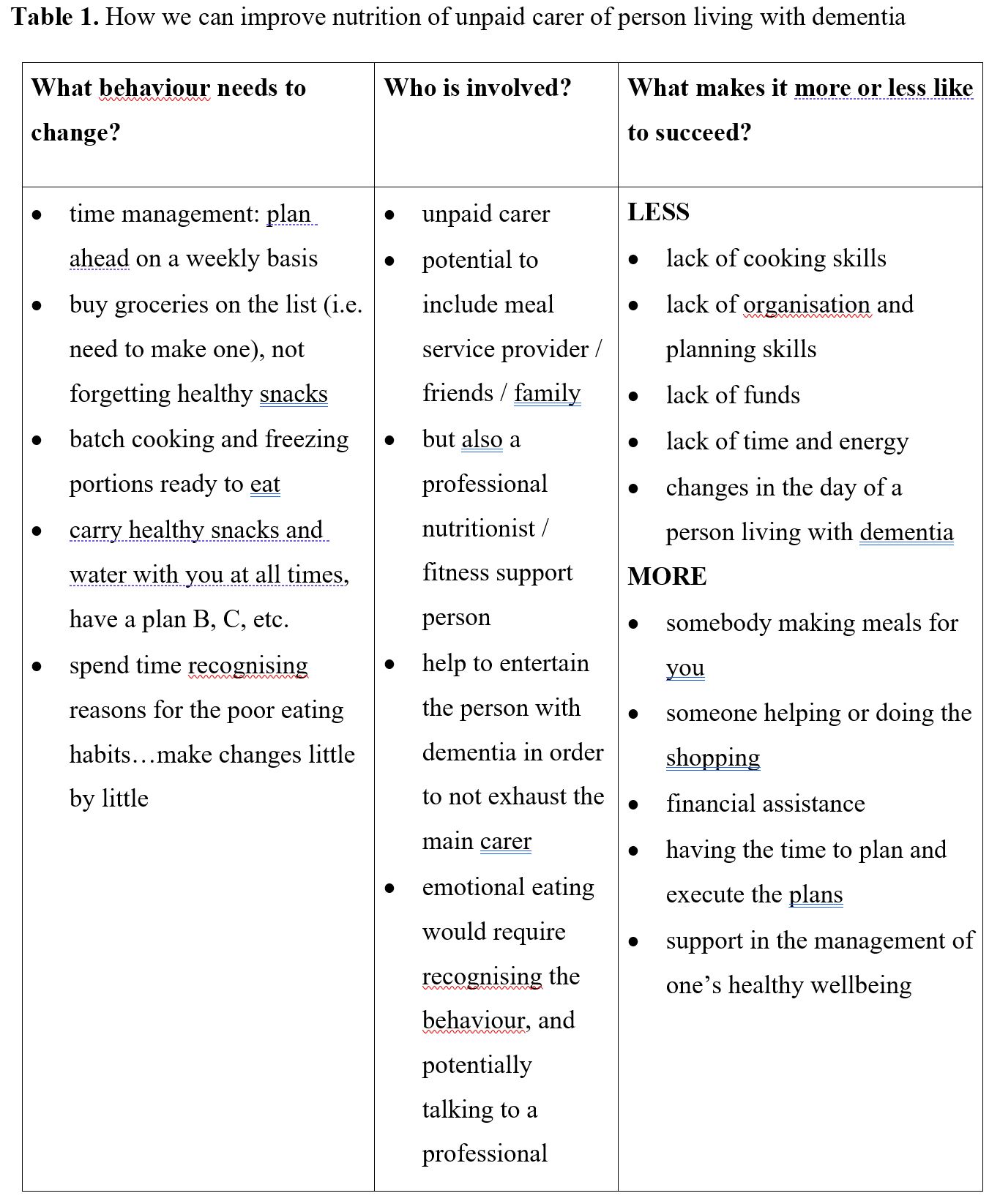
Putting unpaid carers of people living with dementia into spotlight
While our group meet primarily to work together on future research funding application it was crucial to us that we share with others what we have learned so far. Ultimately we would like to put unpaid carers and their own wellbeing and health into the spotlight. As such we engaged with an illustrator July Dosad who captured our work on how unpaid carers of people living with dementia can address some of their health and wellbeing concerns when it comes to their own health and wellbeing. We would be very keen to hear from unpaid carers of people living with dementia whether these illustrations resonate with you or not. If you wish to receive them in PDF form please do get in touch. We are also happy to share them with organisations who support unpaid carers of people living with dementia.
In the coming months we will be working together to share more outputs from our work together as well as our experiences from co-producing together a research application through webinars and academic paper.
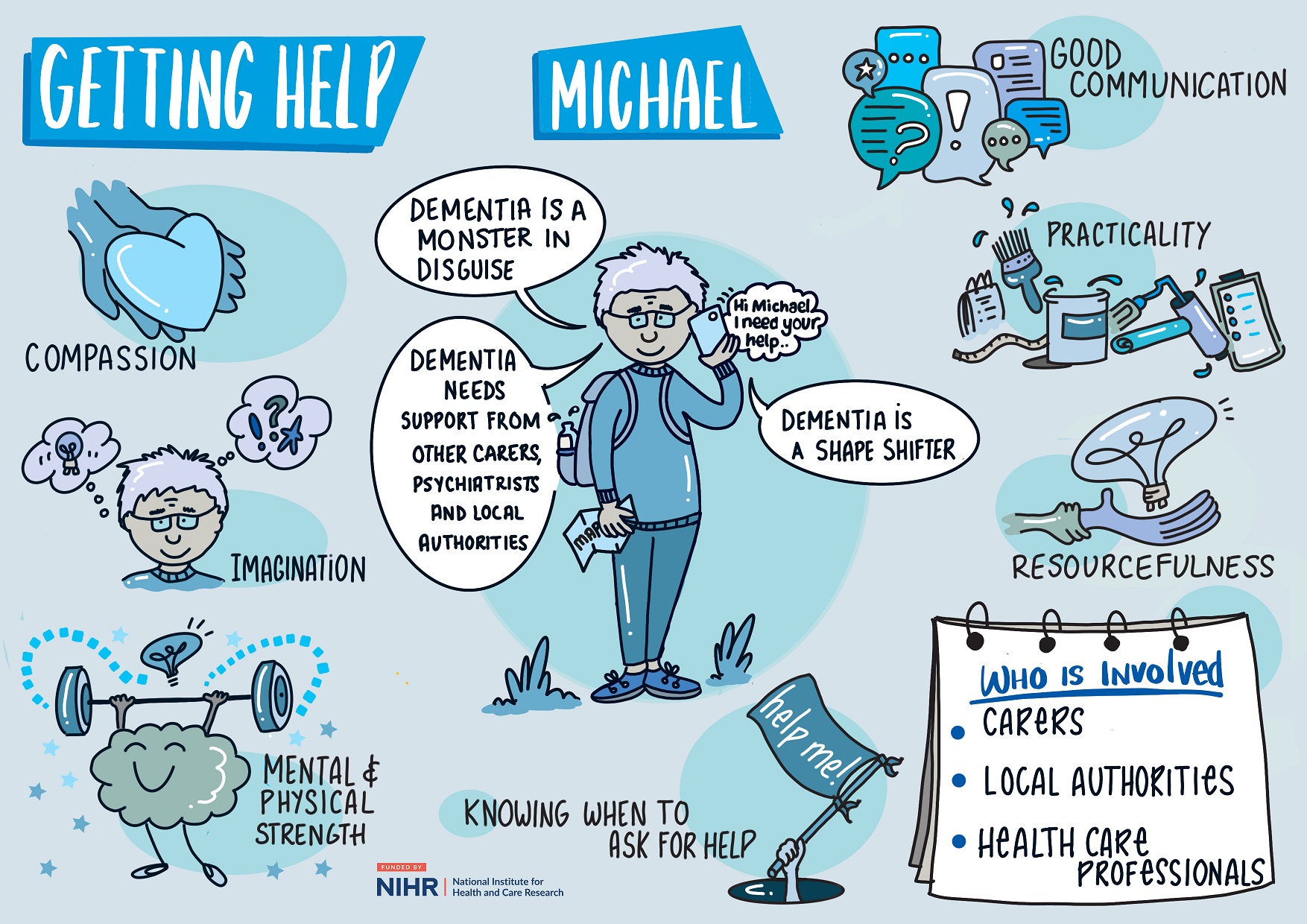
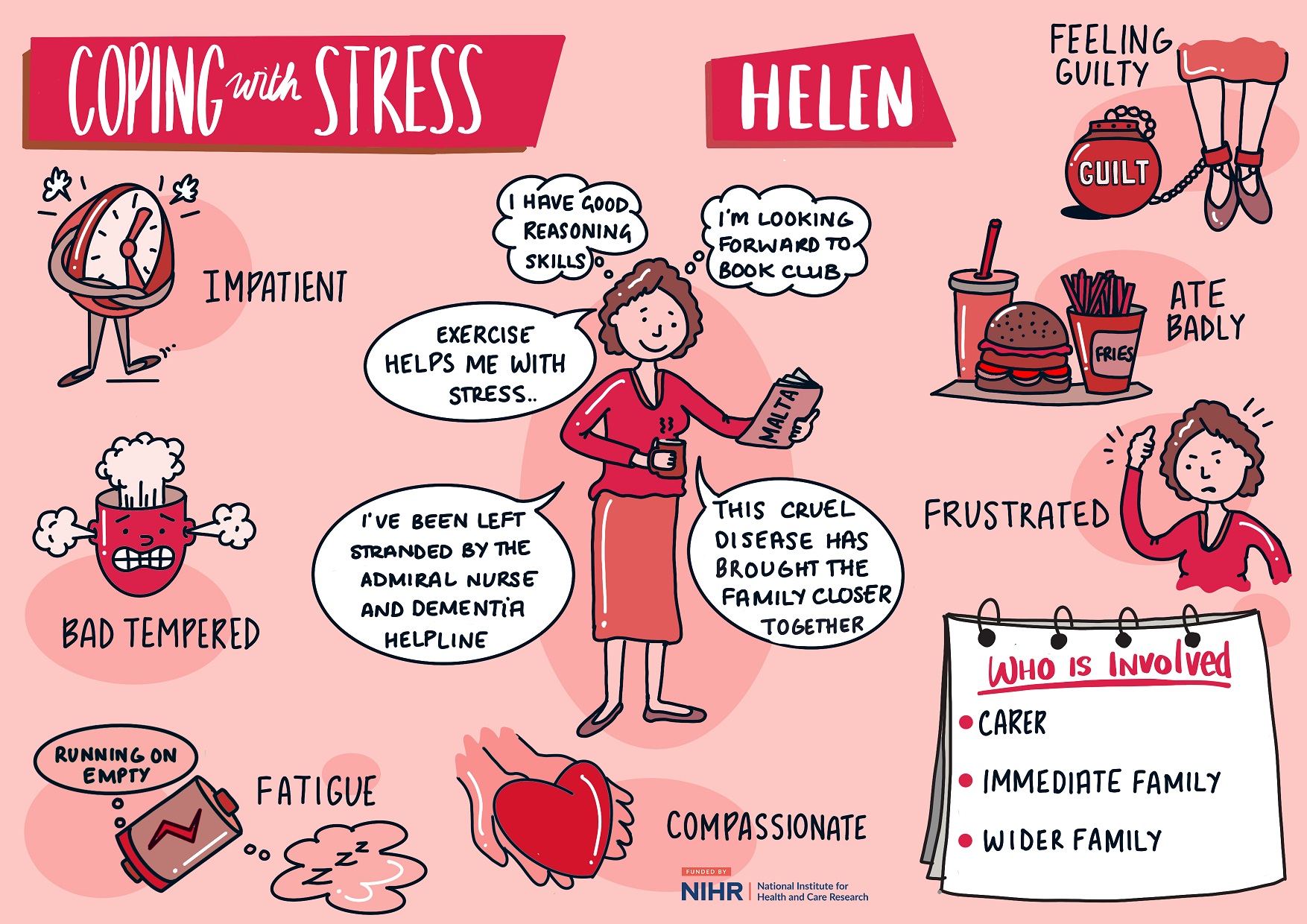
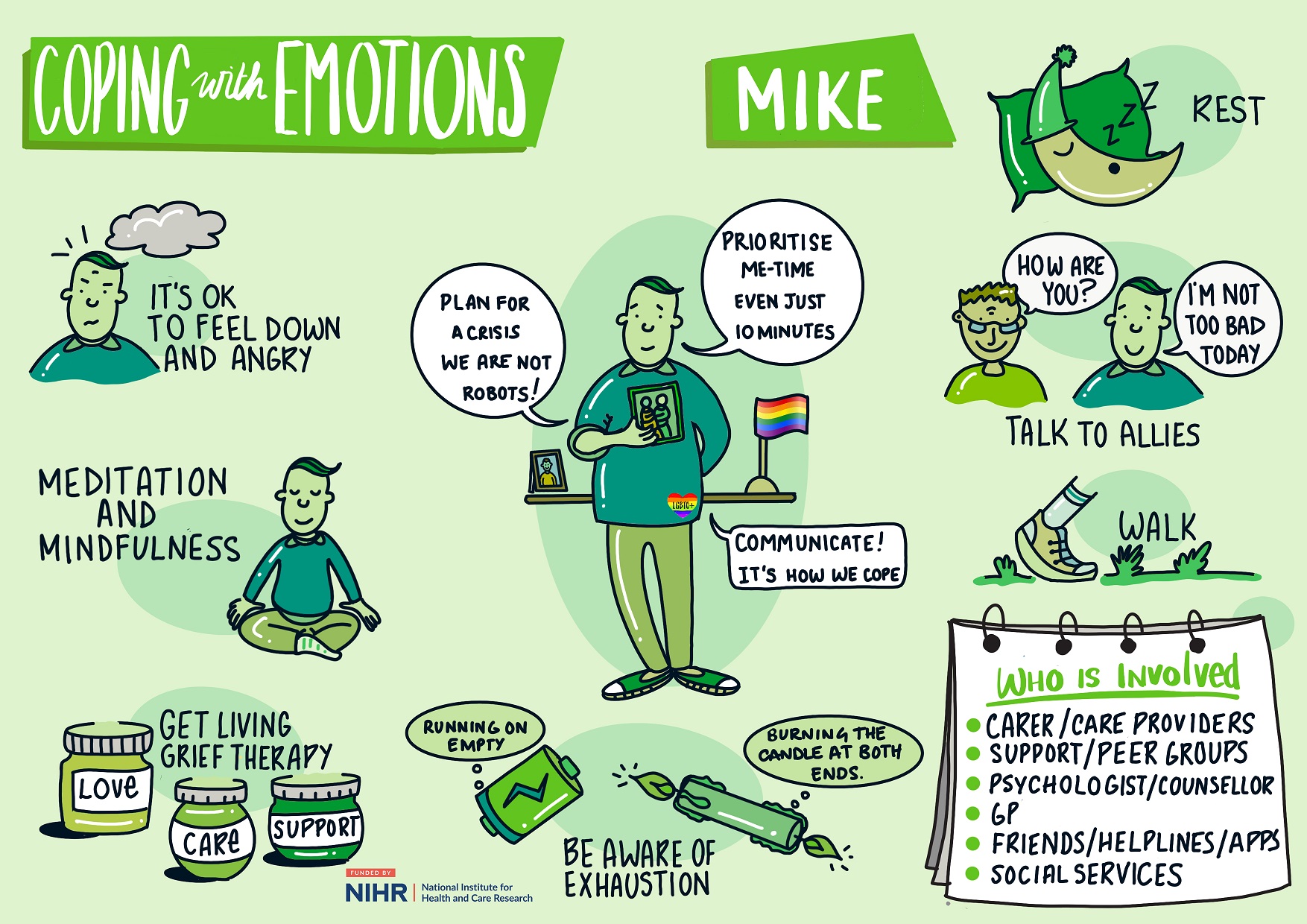
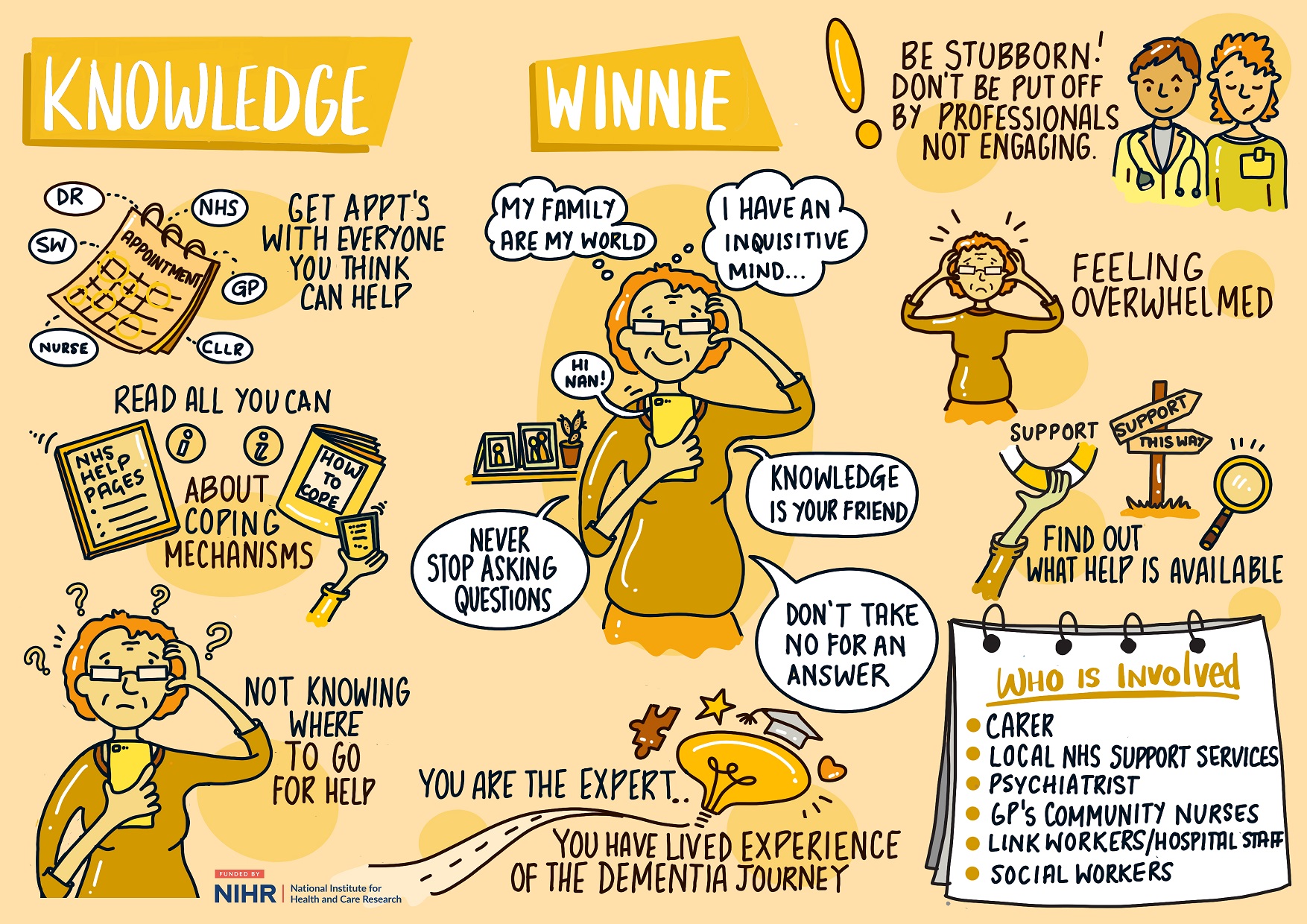
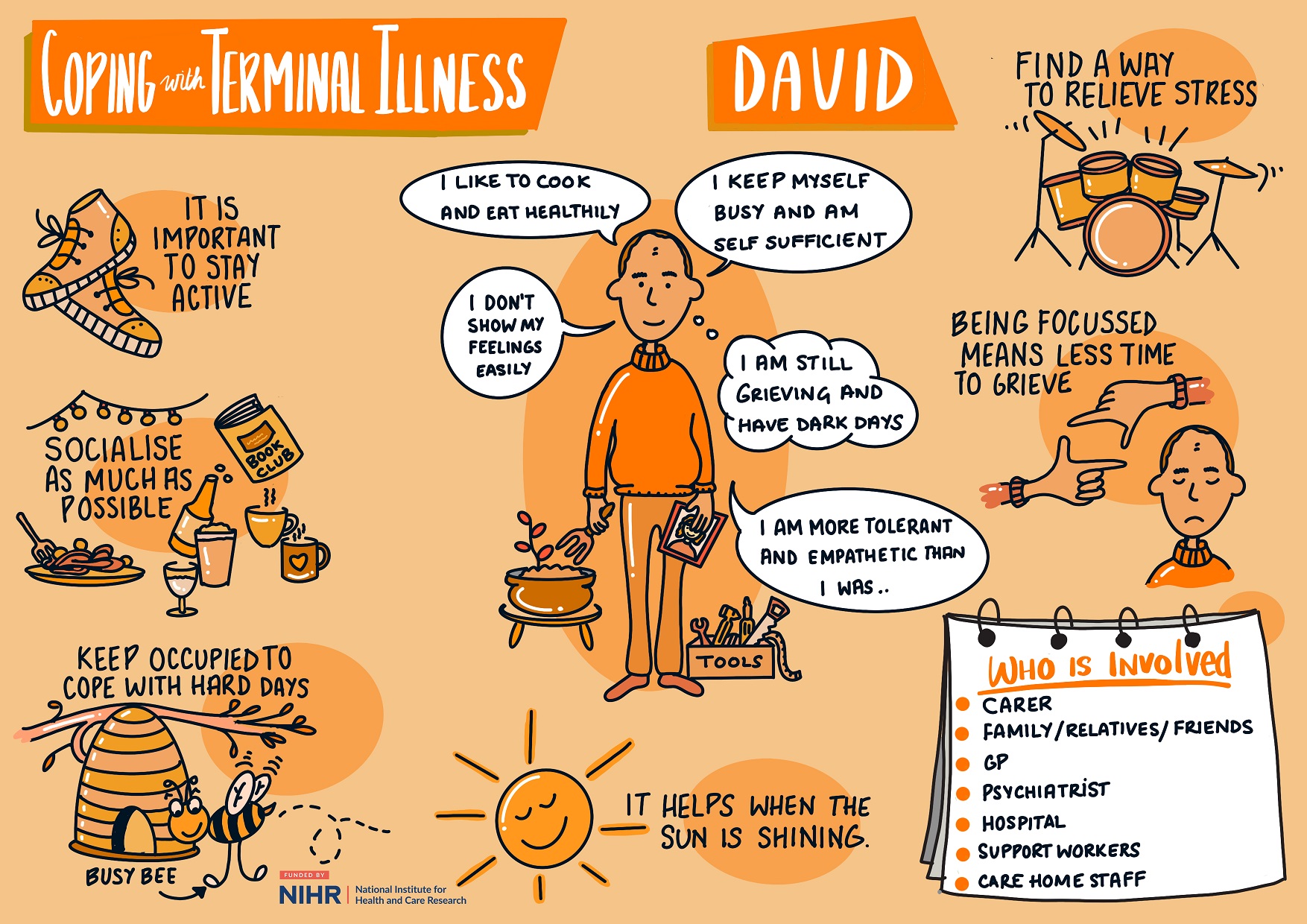
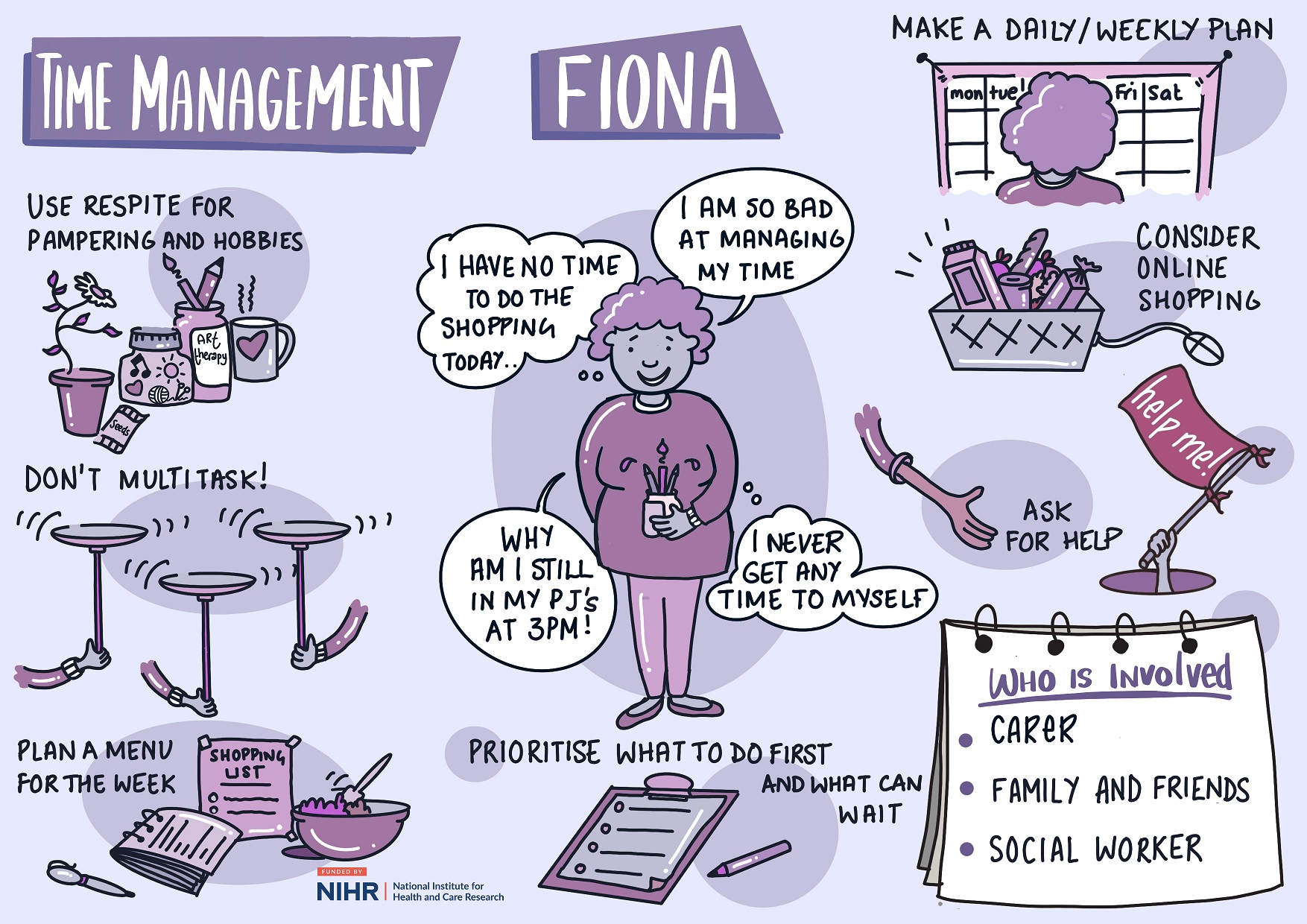
Illustrations
The illustrations were created by Juli Dosad. Please check out her work here: https://julidosad.co.uk/. We enjoyed working with her very much and we felt she did a fantastic work in putting our work into the beautiful illustrations.
Get in touch
Get in touch via b.silarova@kent.ac.uk if you have any comments, suggestions etc. to these illustrations.
Funding
This work was supported by the National Institute for Health and Care Research Three Schools: Dementia Research Programme Career Award. The views expressed in this publication are those of the authors and not necessarily those of the National Institute for Health and Care Research or the Department of Health and Social Care.
References
- Dementia Statistics Hub. Impact on carers. 2018; Available from: https://dementiastatistics.org/statistics/impact-on-carers/.
- Carers UK. State of Caring 2022. 2022; Available from: https://www.carersuk.org/media/p4kblx5n/cukstateofcaring2022report.pdf.
- Silarova, B., et al., Feasibility, validity and reliability of the ASCOT-Proxy and ASCOT-Carer among unpaid carers of people living with dementia in England. Health Qual Life Outcomes, 2023. 21(1): p. 54.
- Michie, S., Atkins, L., West, R. , The Behaviour Change Wheel. A Guide to Designing Interventions. 2014, Great Britain: Silverback Publishing.